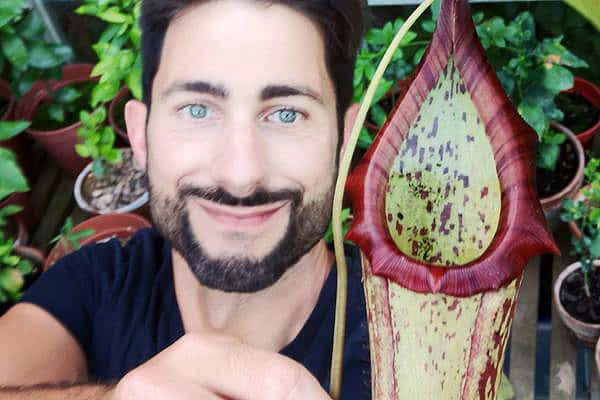Chris Thorogood
Botanist or Plant Scientist
I have been fascinated by plants for a long as I can remember. I spent much of my childhood growing bizarre and unusual plants including carnivores and parasites. I have carried this passion with me ever since and I’ve been fortunate enough to see some rare and extraordinary plants in their natural environments.
I won a scholarship to carry out my PhD research on parasitic plants at the University of Bristol. This was great because it gave me the freedom to explore the biology of a group of plants I have had a lifelong passion for with an open brief! I chose to investigate how broomrapes (Orobanche) form new species due to their patterns of preference for particular hosts (‘host specificity’). To do this I developed a unique approach combining ‘rhizotron bioassays’ – a growth system to observe the parasite-host infection process, in combination with molecular (DNA-based) data. This work showed for the first time the importance of host specificity in driving the formation of new species (speciation) in parasitic broomrapes.
Another research focus of mine is the flora of the Mediterranean floristic region which I actively pursued following my PhD and a year’s postdoctoral research. Through a decade of teaching field botany in the Mediterranean (what better place to teach!) and field work of my own, I compiled two field guides on the flora of the region (one on the Algarve with Professor Simon Hiscock, and another on the western Mediterranean), both published by Kew. This was a wonderful opportunity for me to give back some of the joy to others that this wonderful flora has given me – it’s enormously rewarding to see people out and about using the field guides!
My current research interests are in speciation, parasitic and carnivorous plants specifically, and in the diversity of the Mediterranean Basin floristic region; I am based at the University of Oxford Botanic Garden and work in close collaboration with other scientists at University of Oxford Plant Sciences.

